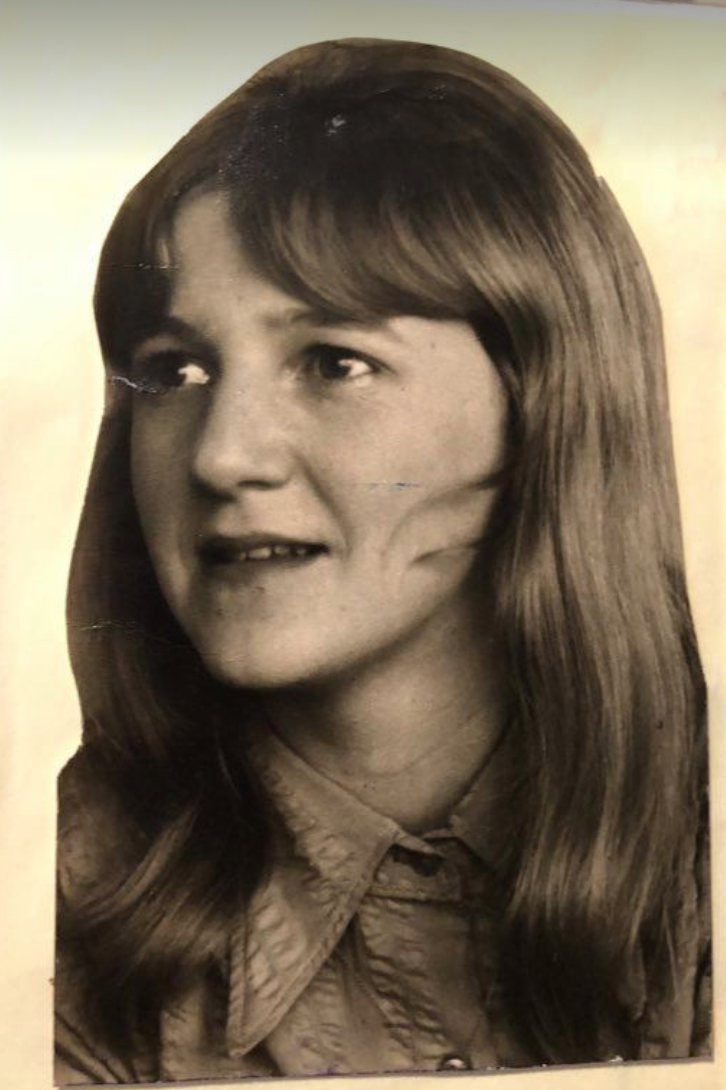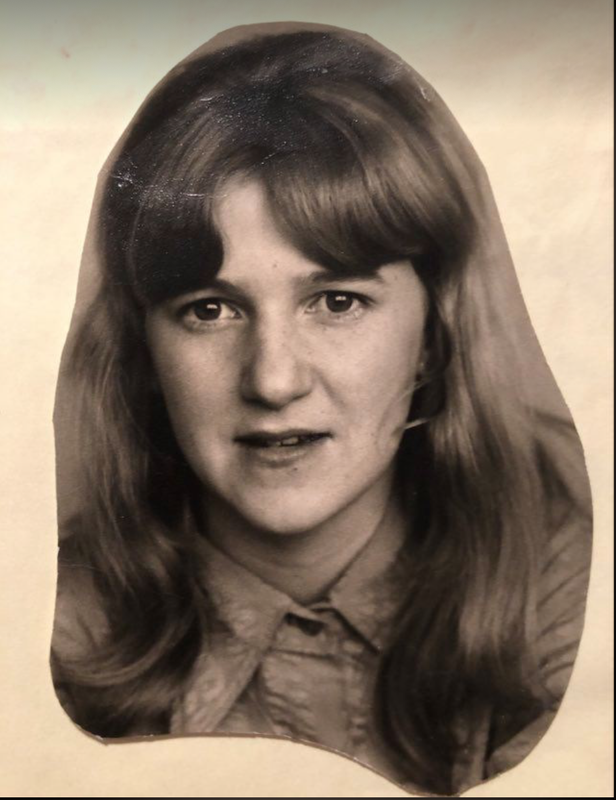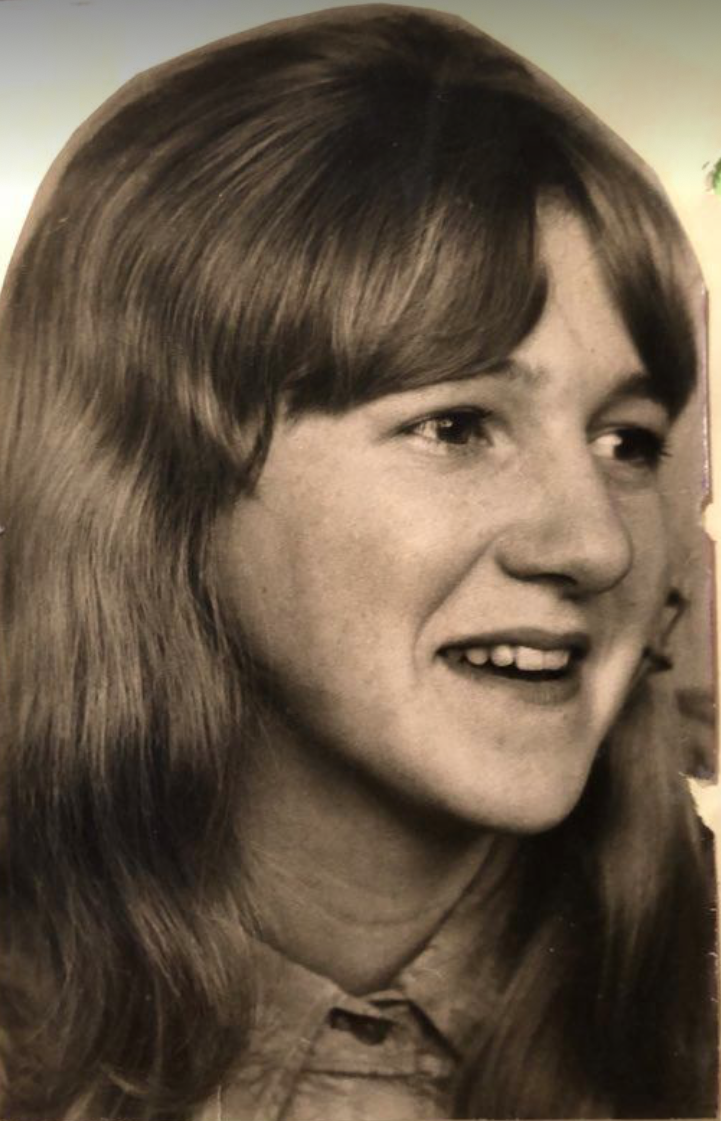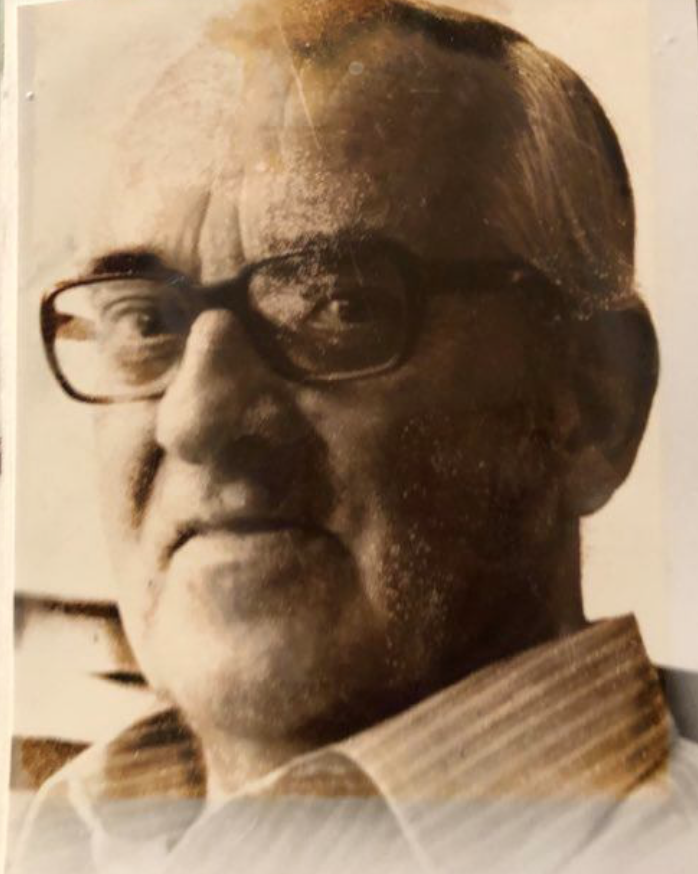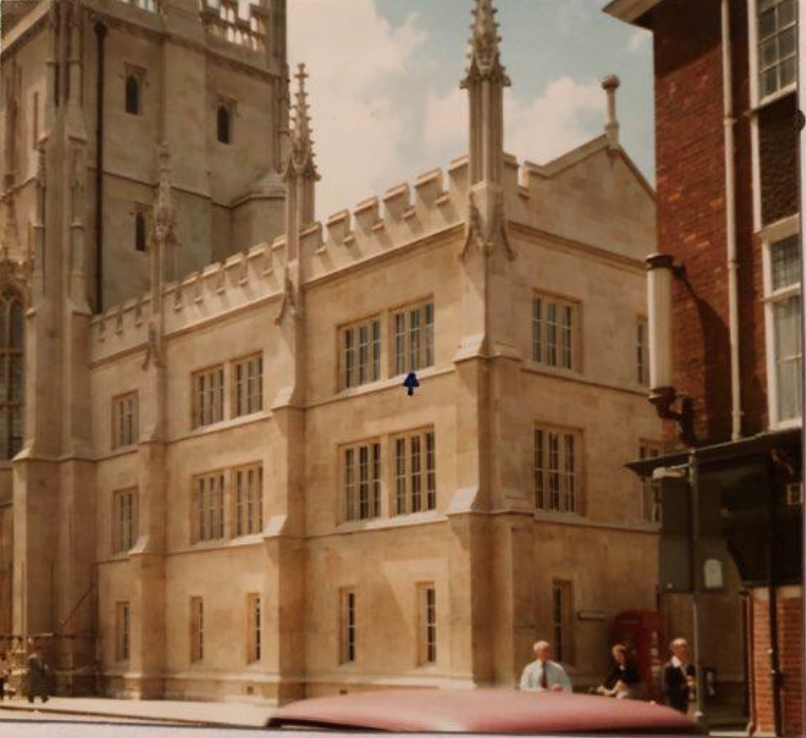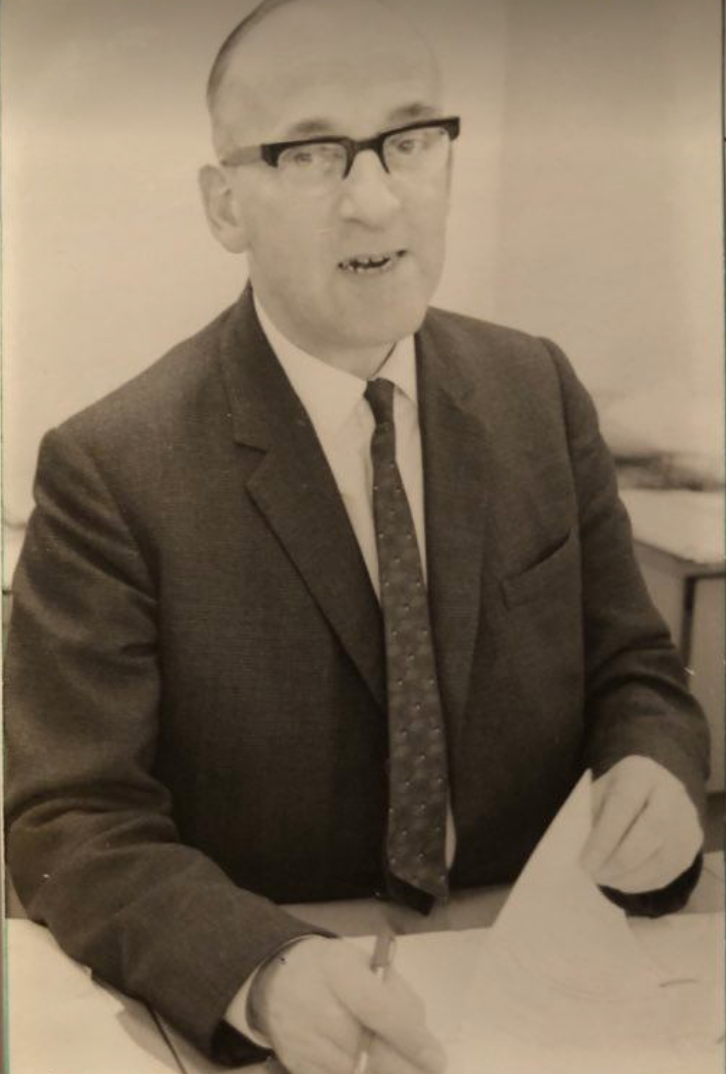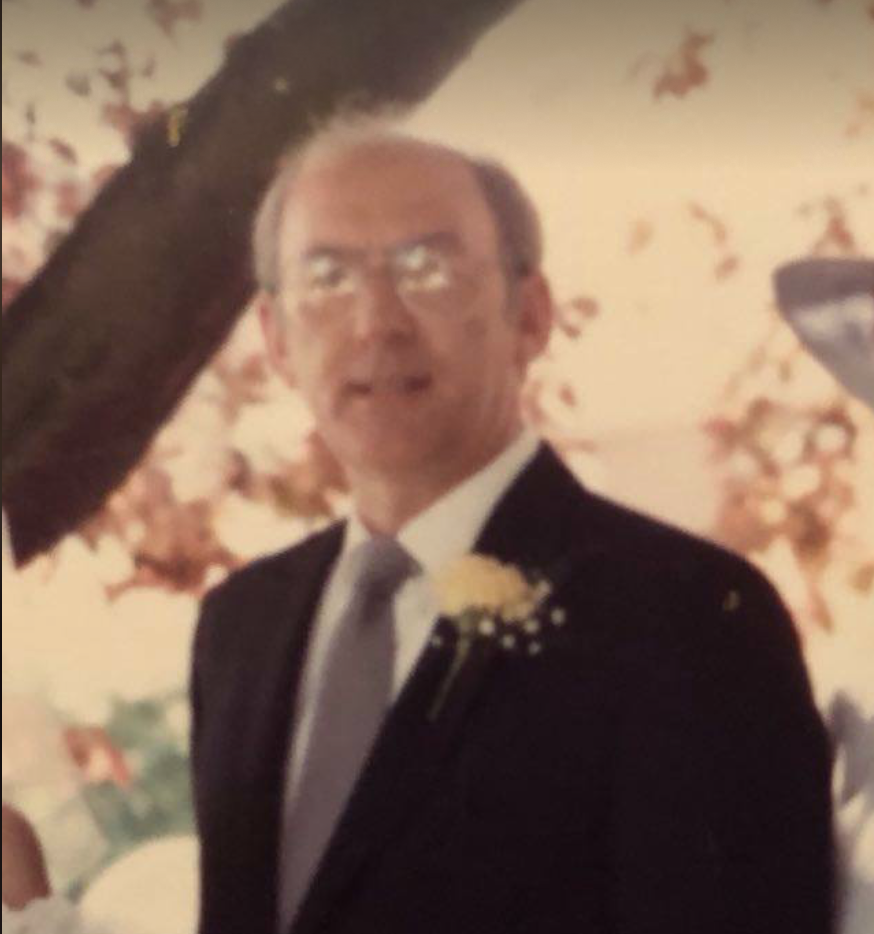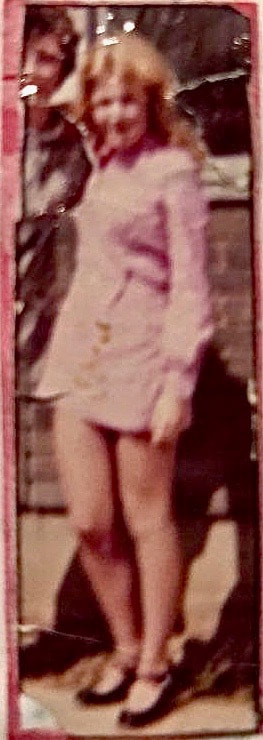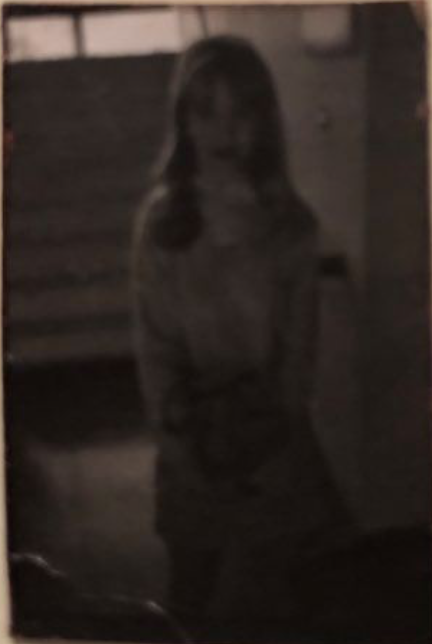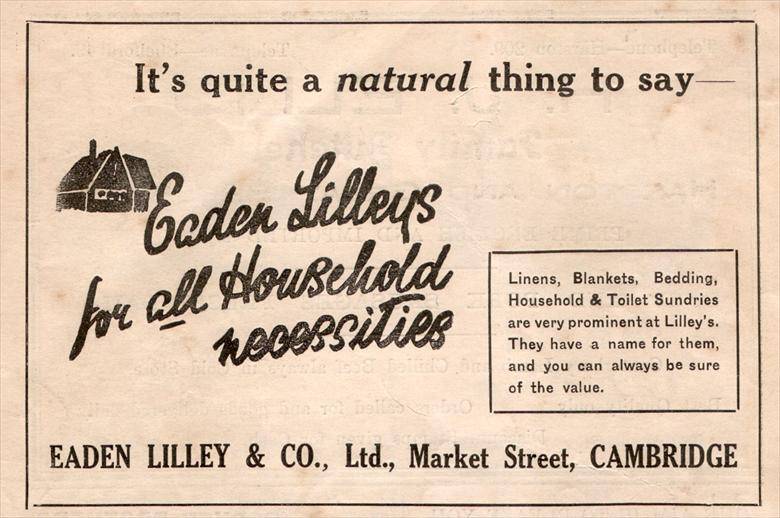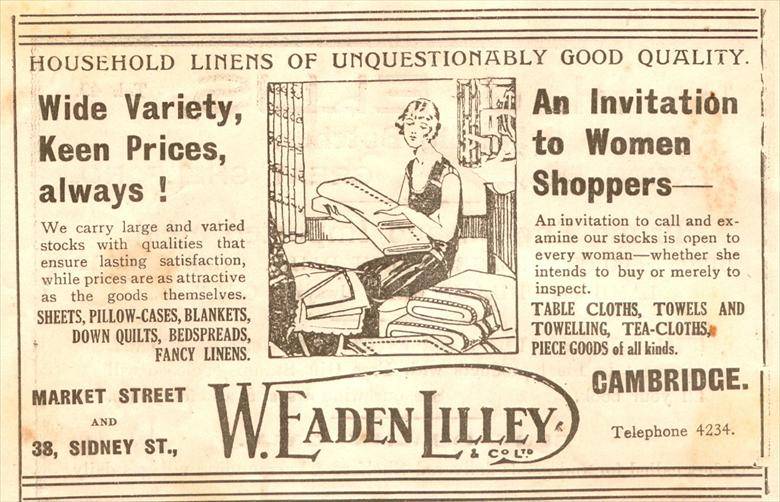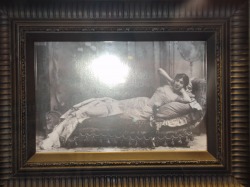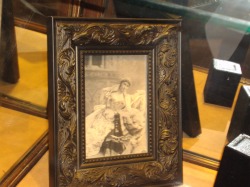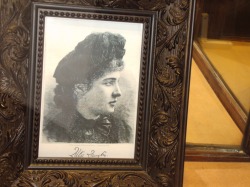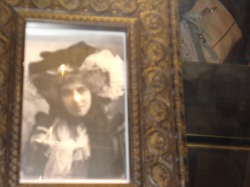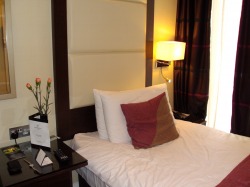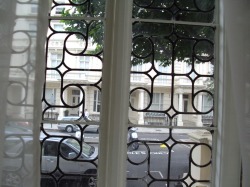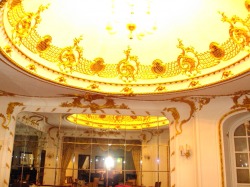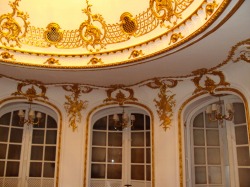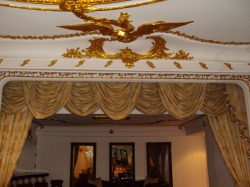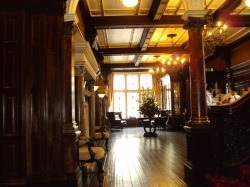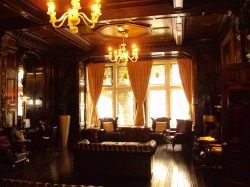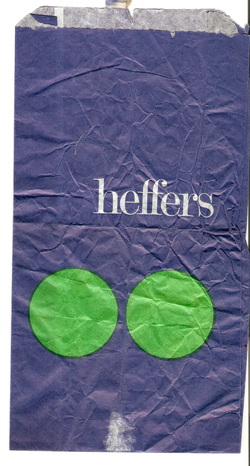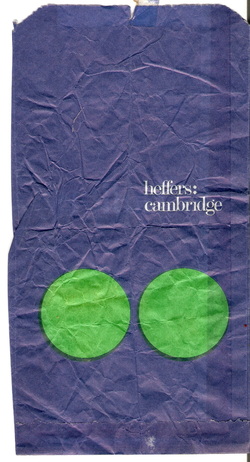|
Cambridge University Press Memories by Elizabeth Toller-Brown, I started work at Cambridge University Press (C.U.P.) in August 1968, in the ‘Assessors’ office; a section of the accounts department. I was just seventeen years old. This was the start of a big adventure for me and it continued for the next three and a half years. During this time, I grew up, had great fun, in so many ways and made more mistakes than I care to mention, but all in all, it was generally a happy time. I left before big changes took place there and I am glad I did! I had enjoyed some of the best years C.U.P. had to offer. In my time there, I worked just a few offices from my beloved father, Eddie Toller. He had worked at the old C.U.P. building, in Trumpington Street, from the age of fifteen and had worked his way up to become one of the managers and ‘Production Liaison Officer.’ In my father’s previous office, in the front corner of the second floor of the old Pitt Building, he had a huge wooden desk; full of interesting things like putty rubbers, that a child like me could squeeze and squash and a swivel chair, which I could spin around on, when I went into ‘town’ and called in to see Dad. Across the road from this lovely old building was a hairdresser’s shop; Reid’s. One day, for fun, the employees lifted the cover off the man hole in the path and kept popping a hairdresser’s dummy head out, much to the surprise of passers by! This was one of the amusing tales Dad told us, when he cycled home, had his dinner (including a dessert), a lie down on the bed and then cycled several miles back to work! We lived in Netherhall Way and I don’t know how he did this, but he was very fit! He had done the same when we lived in Oxford Road, until 1954. It was much easier for Dad to cycle to and from work when the new building opened in Shaftesbury Road, in 1962. I had not been able to take the eleven plus exam, as I was in hospital at the time (another story!) and I felt cheated, as they had said I was “university material” and going to college had been my childhood dream. From my later years at secondary school, I determined to work at the new ‘Press’ with my father and my brother-in-law, Mick Brown. Several of my mother’s Hatchman cousins also worked there, but at that time, I did not know them. When I eventually got a job at the Press, after doing two other mundane jobs, to pass the time of waiting, I found that my office was on the second floor, near my Dad’s. I was to be surrounded by a number of other ladies, mostly around my own age and our poor male boss, Jack Whybrow, had his desk at the back of our office. What goings on he had to endure each day! He was such a quiet, gentle man, nearing retiring age. All of the offices and workrooms were built around a square of gardens, with other workrooms leading off on one side. This meant that we could look out of our office window and see people across the way; great fun for them and us; we fun-loving, giggly girls! One day, I was about to go on one of my walk-arounds, to take papers to other work departments like ‘Compositors’, ‘Readers’, ‘University’, etc. when my friend, Tina Leland, put her black cardigan over her head and a white band across her forehead and sat in my chair near the window, telling me to tell those in the opposite room that we now had a nun working in ‘Assessors’ and of course, they then looked up to see if they could see her! Tina sat there singing ‘Ave Maria’ and saying she was ‘Mother Inferior’! That was just one fun time I remember. We were paid on the 28th of each month and my friend, Carol Hurst, and I would go to town in the lunchtime, on pay day, get some cash out and go shopping in the ‘Alley’ boutique in Falcon Yard, to ‘Primavera’ gift shop on King’s Parade and on the market. I sometimes bought gifts for my Mum and maybe pear drops or sherbet wafer rounds for my Dad, which he enjoyed eating from his desk drawer. Of course, we also bought L.P. (long-playing) records, too. The other lunch-times were usually spent in the large staff canteen, eating cheese rolls, or we might go for a walk to nearby Finches Walk or somewhere local. On Friday evenings, Carol and I would go to the Press discos in the Pavilion, which was then a very small building in the grounds. The disco was run by three of the apprentices, whose work I mainly dealt with; Barry Reynolds, Graham Cherry and Roy Fabb. It was, of course, called the R.C.F. Disco! ‘My’ apprentices included Barry Reynolds, Roy Randall, Graham Cherry, Roy Fabb, David Pearson, Alan Pell-Coggins, Graham Pegg, Noel Woodgate and Roger Thwaites. I also had to assess how long jobs would take for those in ‘Comps’ (Compositors), ‘University’ and ‘Journals’ departments. The men often tried to get me to give them longer time to do jobs, so that they could get more bonus minutes! I enjoyed working out the times for jobs and I could spot mistakes on proofs easily. Carol and I loved these wonderful times. We dressed in the latest fashions and wore quite a bit of make-up, which we took great care applying! We loved dancing at the discos and were pleased when reggae and bubblegum music came along, enjoying these, as well as the usual soul and pop music. In those days of the late sixties to early seventies, bands were always called ‘groups’ and bands were a larger company, playing ballroom, jazz, classical music, or whatever Another use for the Pavilion was as a rehearsal room for the C.U.P. Singers. I had a small group of my own among this group of people, called ‘The Press Gang.’ As a larger group, we sang songs from the musicals, a medley of London songs and many others and my little group sang things like ‘Morningtown Ride’, ‘Michael Rowed The Boat Ashore’ and other folksy songs. I played a 12-string and other electric guitars, which I frequently changed at Ken Stevens, in Petty Cury! We did many gigs all around Cambridgeshire and nearby Suffolk. In my office, among others who came and went, were: Carol Hurst, Gill Hurst, Julie King, Tina Leland, Teresa Georgi, Boosha something, Iris Squires (a lovely older lady), Helen Sweet, Yvonne Pope, Margaret, (who later married ‘Pressite’ Dave Allen), Janet Ayers, Paula McKnight. In Dad’s outer office were Mick Brown, Brian Allen, Tony Littlechild, Colin Walsh, Carmen Raghaven. I knew everyone at the Press and I loved my job and work colleagues. I think it’s sad that all girls do not enjoy that camaraderie with work colleagues and the chance to enjoy the dances, discos and parties that were connected with work, in those golden days; along with the socialising and fun experiences galore, including swimming together at Parkside, which went well until my bikini top came undone in the pool once and the Compositors manager, Gerry Haslop, told everyone about it the next day! All Press employees were photographed by one of the ‘Readers’ named John Bowman; a quiet, reserved person usually, but a keen photographer. Ah, happy days! Elizabeth Toller-Brown. April 2021
0 Comments
Last night (8/07/2010) I stayed in a hotel in London called ‘The Grand Royal’, situated at no’s 1-9 Inverness Terrace, London – just to the north side of Hyde Park. To my surprise, after settling in, I noted that the hotel bar was named the ‘Lilly Langtree Bar’ as I waited at the reception to ask why the bar had been named so I also noticed that there was a glass display cabinet in the lobby containing several old frames photographs of Lilly Langtree. When I asked the lady at reception what the link with the hotel and Lilly Langtree had been, she was unsure but duly printed off a history of the hotel for me. According to the brief history which I was given, the hotel had been built/renovated at the turn of the last century, commissioned reputedly by Edward VII as a private residence for his mistress Lilly Langtree. The architect was Charles Mews who had just completed the London Ritz. What was unusual about the renovation was the addition of a private theatre – which is now the ‘Lilly Langtree Bar’ – Lilly Langtree was a famous socialite and actress and the hotel I stayed in last night was created, supposedly, as both a love nest and a career bolster for Lilly.
I took some photos of the pictures of Lilly Langtree displayed in the hotel lobby and some of the theatre bar which you can see below. The theatre bar originally consisted of two rooms, the front circular and domed (the auditorium), the second (the stage) rectangular with a proscenium arch between them. It is a very intimate space with mirrored walls and Venetian glass chandeliers with soft plush velvet seating. The wonderful, original Edwardian theatre seats are still there and in very good condition. My interest in this and surprise came from the fact that I had ended up in a place once frequented by my great grannies friend! My great granny was Ada Broom (previously Cruden, nee Hatchman) and when she lived on Russell Street in Cambridge she would let out rooms. Lilly Langtree had stayed at my great grannies house in Cambridge several times when she had been playing at the ‘New Theatre’ in Cambridge, which was just down the end of Russell Street on Hills Road (no longer there). My granny (Ada’s daughter) remembers Lilly Langtree staying at the house well. One of the tales she tells is how Lilly had a little dog she would carry under her arm (not too dissimilar from the Paris Hilton’s of today), granny told me how one day Lilly came rushing into the house calling “Mrs Broom, Mrs Broom!” and how grannies mum had come running to see what was the matter. Lilly had said “Oh Mrs Broom, it’s my poor little dog! He has hurt his foot!” Great granny had said “Alright dear, give him to me; let me have a look…now tell me what happened.” Lilly replied by explaining how she had been in town (Cambridge) and had gone to Boots (still there today!) and at the entrance to Boots there was a revolving door and as she had gone through the door her little dog had got his paw caught. She had rushed straight back to great grannies house on Russell Street. Great granny bandaged the little dogs paw and saw him alright. Granny told me how Lilly left a box of chocolates on the sideboard for her dog to have as a treat and had told great granny to give them to her dog every now and again when she was out. Granny said how her mum had said “Now dear, you are not to touch those chocolates coz they’re for the dog” and granny had replied “but they’re real chocolates for people” and granny still says today “they were you know!” So what a nice surprise it was last night to spend a night in a hotel where Lilly had once slept too!
If you'd like to support the work that I do, why not buy me a coffee, I'd be really grateful and it will help keep me going :)
This is the wrapper from a Cadbury's Picnic bar that I purchased, in the 1980's, from the sweet shop/newsagent on Adkins Corner, Perne Road, Cambridge
This is one of the paper bags from Heffers in Cambridge from the 1980's. I used to love that Heffers on Sidney Street. When I got birthday money I would go down the town and always go in Heffers. I'd go straight up to the first floor where there was lots of toys and nice things to see. I would nearly always buy some marbles and pretty stickers :)
These letters belong to my aunt Joan Punter ( nee Toller ). These contain interesting home front information and political views of the war. They were written by my Great Aunt Marie to her husband George Cruden. ( both now deceased. )
In several of these letter Marie refers to George as Peter Precious- as she was a Catholic from Ireland and didn't want to introduce him to her family as George ( the English kings name ) she called him Peter. At 95: [ Oxford Road Cambridge ] My Dearest x Thanks for your letter, & it was certainly a gruelling journey- pity they don’t put more corridors on- what a life at London Road- that’s some billet- guess the sooner they decide about some other places the better for all concerned- as the a.m. people must be getting fed up with it too. They say on the wireless that they’ve got so many airforce personnel they are drafting them into the other two forces- particularly the army- as that is where they are wanted, seems such a daft arrangement, although they add they are continuing to take recruits. Do you think bringing up the matter of remuster has brought about the recent change about for you & those other chaps? Went to the pictures by myself on Monday night- mother dosen’t care for pictures she says- Monday 6 p.m. I did the front garden by cutting the grass, clearing the beds of toffee papers, rags & other odds & ends, & mowed the back lawn- but I’m scratched to bits for overlooking the rose trees, & plonking into the taller ones. The weather keeps nice, that’s one thing in it all. Yesterday we went to the Botanical gardens. Con & the children. They enjoyed it…can’t seem to think of anywhere nice to go except to Frenches & Brittans..It would have been nice by the sea this weather, wouldn’t it? Uncle Harry turned up at teatime last night- he does look so thin & ill- but he says he couldn’t stand life in that Linton institution any longer & has come back to the lodging house here- I got that tea tin open & passed it on to mother- its best to do that think, don’t you- Well dear, did your washing yesterday ( what a pile ) & hung it out, if she doesn’t do it on me , I’ll iron it. Well cheerio, love. Hope you are feeling better & looking forward to seeing you x Your own loving Marie xxxx p.s. Had a warning Monday night. These letters belong to my aunt Joan Punter ( nee Toller ). These contain interesting home front information and political views of the war. This letter is one from George Cruden's mother Ada Broom, who lived in Cambridge.
95 Oxford Road Cambridge August 1st 1945 My dear George, Thanks for letter glad to hear you are keeping well, & trust something will soon turn up for you either a nice shop or a nice house... Bill [ brother ]said he has not heard any more about that house at Harston , there, that big shop for sale & to let the corner of Gloucester Street that said to be a cycle shop and another the corner of Parkers Piece that said to be another house. no doubt there will be lots soon as there are a lot of people going away. Glad you have got yourself a watch for you will get over that, sorry I am not able to send you a cheque to help you on a bit, it is very nice when a fellow & parent are well off though to give help now and again in stead of the other half about. Well dear Marie will be here after Friday or Saturday & it will be rather nice if you turned up to. your loving mother As written by my aunt Val Burroughs ( nee Toller ) March 2005.
Toys, Games and Occupations. As my mother was into toys herself, she would be on the look out for any toy that she could obtain second-hand. She was delighted with a pedal-car she found in a second-hand shop in Bridge Street [Cambridge] and we would visit Shrives the toy shop near Christ's Lane and Eaden Lilly's basement toy shop. I remember going with my mother to an art shop in Trinity Street and buying watercolours in the four primary colours. Coloured pencils were restricted to those four colours. After the war I remember being just thrilled to have a wider range of colours. A girl in my class at Cambridge High School for Girls arrived at school with a packet of about a dozen coloured pencils and we all clamored around her asking where she'd obtained them. She told us a shop in Newmarket ( Woolworths I think ). Then Derwent pencils came out in Heffers and my friends and I used to go there each Saturday to choose another colour to add to our collection at 9 pence per pencil, which was quite expensive. My mother used to take us to a shop at the corner of Bermuda Terrace to buy colouring books or magic painting books. My uncles used to make me toys like dolls houses, monkeys or clown acrobats that swung between two sticks you had to squeeze; a balancing parrot. We used to spend our time on the allotments- so many of my memories are of playing there and on the local Rec. in Richmond Road, where there were swings, a long rocking horse with a row of seats behind the horse's head and a really long swing with handles all along for several seated children- an older child would stand each end to keep the swing momentum going. Miss. Chandler used to take us onto the rec' sometimes towards the end of the school day. Then we would gather by a tree for the final afternoon prayer before being collected by our parents. Mum went to Belfast for three weeks holiday to spend time with dad who was a Sergeant in the Army. When she came home she brought a baby doll for my sister and a white fur dog with lead weighted feet. My auntie used to knit dolls clothes for us.We decorated twigs with sealing wax-"blossom". When my dad was due to come home on leave I remember drawing a picture of him in his uniform using the 'khaki' chalk. When I'd been to the dentist in Newnham, mum took me to the toy shop there and brought me an orange pop-gun. The same shop sold us a toy sewing machine on another occasion. It did chain-stitch. I remember tracing outline pictures from the newspaper using toilet paper as tracing paper as it was smooth, shiny and transparent. Val Burroughs ( nee Toller ) As written by my aunt Val Burroughs ( nee Toller ) March 2005.
Food and Clothing My uncle Bill had allotments where he kept pigs and poultry ( chickens and turkeys ). We therefore had veg and eggs. Chickens was a treat. Sometimes Uncle Bill would kill a hen that had stopped laying and it was cooked in a saucepan as a "broiler". We brought rationed fish from the MacFisheries and rationed meat from Roses the butcher in Petty Cury [Cambridge]. At Richmond Road School, I was one of the children who was selected to recive cod liver oil of malt, administered daily by the spoonful to each child as we queued. A crateful of small bottles of milk stood warming in the hearth in Miss Chandlers classroom. At the end of the war we relished the idea of fruits we hadn't had before, like bananas. At our Victory party in Richmond Road we were given ice-cream for the first time, although a neighbour who worked in a hotel did used to bring home small bars of yellow 'ice cream'. A neighbour, Mrs Kidman, used to spend some of her sweet coupons on me and would give me turkish delight. At the end of the war, the first influx of sweets included 'wrapped soft-centered fruit sweets from Poland-an inch and a half long with pictures of fruits on the paper wrappers. At Easter my mother would make me an Easter egg. She would melt chocolate and pour it into two bakelite egg cups. I remember sitting by the radio, watching these set, placed in front of the radio. They would be stuck together when set. We would go to the clinic at the Methodist Church on Castle Street where we recived concentrated orange juice that you would mix with water. Clothing rationing, combined with low income meant that families were glad of second hand and refashioned garments and bedding. We were thrilled when the Red Cross gave my sister and me a cardigan each because our father was a solider, ( my mother recived a bedspread ). Our wardrobes were never full like they are now. Our blankets had to do for several years and would be passed from one generation to the next. Some of them were thin with no fluff left and often bore the utility mark. Overcoats would be piled on top of bedding to add extra warmth. Coal was rationed. We would awake to frosty fern patterns on the inside of the bedroom windows. When I was confined to the front bedroom for weeks with Scarlet Fever, I remember Miss Chandler bringing some of my class-mates to wave to me from the other side of the road. Mrs Fletcher, the milkmans wife, gave me some jelly- an unobtainable treat! All scraps of food like vegtable peelings were collected in the pigswill bins that were found at intervals along the kerb-side, ours was next to the telegraph pole outside 112 Oxford Road. As Uncle Bill kept his own pigs and chickens, scraps also went to them. I remember the smell of potato peelings boiling on the gas cooker and then they would be mashed into chicken food that looked and smelled like bran. My auntie would carry it to the allotments each afternoon in buckets. A well provided water and I warned to stay away from it. Horses and carts delivered milk, vegtables etc. The milk came in bottles with cardboard tops. If you pressed out the centre you had a ring on which to wind wool to make a pom-pom to decorate clothes or to play with. I remember watching the greengrocers horse eating from its nose-bag outside our house and then tossing its head to reach the remains at the bottom of the bag. Val Burroughs ( nee Toller ) 2nd Letter from my great grandmother Ada Broom (formally Cruden, nee Hatchman) to her son George Cruden.
95 Oxford Road Cambridge Feb. 28th 1941 My dear son, Thank you for your nice welcome letter, thought I was never going to hear again from you, Arthur [Cruden] said once you start that you would not be able to get away from it. It’s a shame you have to work so many hours and others are walking about doing nothing but God knows best you are safer there I should say. George and Louie? Was at Pheobe they said London had had a lot of bombs; we have had a lot here lately and a lot of deaths, poor Mr Britton was killed with a bomb and Mrs Peck’s shop down to the ground and also Louies boot shop so that is down for now. 52 bombs they dropped in the night. This last 2 nights they have been quieter. There is no sign of a house anywhere only a sumphj shop and I’m afraid your clothes will be spoilt. You ought to of sent them home because they can’t look after them in a stone place like they have got. did you get back alright it must have took all your time to write letters the few hours you got off but it was a change to get away from the work a bit. I had a letter from Marie [Cruden] she seems to be getting on all right. What time do you get to bed? Connie [Connie Toller- George’s sister] and the baby are well. Eddie [Ed Toller] is supposed to come home 12th March if leave are not stopped we are expecting anything these days. We can only trust to God that things will soon be settled. It’s dreadful the suffering; these days and dear people being killed daily and everywhere take care of yourself George and I do hope you will soon get some more leave. How do you keep in health? Has your cold quite gone. I am beginning to feel better now, 2 months of ups and downs in bad health. I expect you have plenty of snow drops about and crocuses this time in the year if you have more time to enjoy the country ..to the.. and send love and down your handkerchiefs I sent them off with this letter I have done the woolies and will send them on Monday Love from us all your loving Mother xxx P.S So sorry were all broke this week George but mum and I will send you some fags in a few days Con. [Connie Toller] Written by Joan Punter (nee Toller) – my aunt – transcribed by Michelle Bullivant Dec 2010
PART ONE: When I was born on 16th April 1940 my father, Eddie, was away in the War. He came home on leave from time to time but I didn’t really have time to get to know him and I apparently got really cross if he and mum danced to the radio together, or kissed and cuddled. We had Russ and Ivy [Russ Broom & his wife – Joan’s uncle, my great uncle] living with us at 100, Oxford Road, so Val [Joan’s sister, my aunt] and I had a lot of attention, games played with them, books read to us and plenty of fun in spite of hours spent under the metal air-raid table, in the cupboard under the stairs (taking turns to sit on the gas meter of all places), and under the piano across the road at No.95. No.95 [Oxford Road] was of great importance in our childhood. Gran, [Ada Broom, formerly Cruden, nee Hatchman, my great grandmother] was there, cooking wonderful old fashioned meals, cakes and pies as did all of her generation. She had also been a kitchen maid, then cook, in service in London as a young woman. It was there she had met her first husband, Cruden. They had George, Arthur and Elsie, then when her husband died of pneumonia in his 30’s, she had to come back to Cambridge where she had support from her mother and sisters, especially Laura and Phoebe. Things were tough and she was very poor. Finally her milkman [Arthur Broom], giving her extra milk and butter for the children, courted her and they married. They had William Hardwick (Bill Broom) in Hardwick Street, then Russell in Russell Street, followed by my mother [my granny] Constance Beatrice. Ada was never one to live a quite life, and she always worked when she could fit it in with her children. I think what caused the most upheaval in the marriage was where she worked at the Globe [pub], Hills Road and started socialising, leaving Arthur minding the children (remember they were not his, and the other three were still very young). There is a true story, told to us by Ada’s sister, Ethel, that one evening when she called at the house, Ada was late coming back from the pub. When she eventually turned up my grandfather said “See, she told me one hour, and it has been three”. With that Ada hit him over the head with a bottle of beer! My grandmother was all heart. She would give her last shilling to a tramp in the street and she loved her children and grandchildren with a deep and protective love; but she had a temper that sometimes frightened people to death. She had had a very hard life and had no time for anyone who was lazy or useless. The stormy marriage ended when our mother [my granny] was 3, so she never had a father figure after that, apart from older brothers of course. The one blessing, I think, that all of my mother’s family had was closeness and support for one another. Ada was always outspoken, even critical, to everyone, though, our mother had to make sure the house was clean when Gran popped over as she might say “What’s that stink in here? You will get the fever!” if something smelly had been left in the kitchen. She had suffered Typhoid Fever and Rheumatic Fever when a young woman so she was very health conscious. Mum remembers, when they lived up Russell Street, if any of them had an accident, Gran would say “Quick, up the “orspidal”, as fast as your legs will carry you!” As Addenbrookes was in Trumpington Street then, it wasn’t far to run. Gran had worked for Turner the magistrate (who officiated at her divorce from ‘Broomy’ as they affectionately labelled him) so on the break up of her marriage Mr. Turner kindly housed them at no.95 Oxford Road “for as long as she lived”! (On her death the house was bought (very reduced in price) by Bill.) So at last, when I was five and starting Richmond Road Infants School, the war ended and my father came home a hero, with his medals and stick with the silver knob on top. We used to play with gas masks on our faces, pretending we were Mickey Mouse, now that they had no use for gas attacks. I don’t want to just record facts and dates in this essay but I would prefer to write a piece with the portrayal of the memories and atmosphere about this time. I sometimes drive down Oxford Road, Windsor and Richmond Roads. I immediately feel the security of the happy years of my childhood. Our house at 110 [Oxford Road] , called ‘Fredaville’, was a usual bay-windowed one, with the ‘front room’ kept tidy and the best furniture in it. We sat there in the sunshine and never messed it up. Our play area was the ‘back room’. It had no bright sunlight streaming in the windows; old chairs, brown worn lino on the floor, and a big old radio by the window in a cupboard. This was our only means of keeping in touch with news, music and comedy and I remember the feeling of dread shown by the grown-ups listening for news on how the war was going. We could be taken over, (with the rest of the world) by the evil dictator, Hitler, our fathers killed , our houses bombed and all of us blown to pieces. However the spirit of our people was always victorious; our father, with his men, would destroy the Nazis forever and we would be safe. Mum was terrified, though, of the planes going over nightly, and the doodlebugs droning over, then exploding. She would drag us shaking, in the stairs cupboard, pitch-black everywhere of course in the black-out, or over to 95 [Oxford Road], making us a fortress under furniture while Gran made cups of tea. You would think Val and I would grow up afraid to leave the house, but it seems to have done us no harm in the long run, for we are both outgoing and confident mothers; so perhaps all our fears were finally put to rest with the jubilation of victory celebrations and seeing our menfolk return, marching proudly and in step along the streets of Cambridge, Union Jacks flying like mad from every house. We seemed to always have a little flag to wave in those happy days. Daddy put away his big kit-bag for good, with his khaki uniform and sergeants badges; Uncle George [Cruden] would no longer be seen in the air force blue uniform, nor Uncle Bill in his firemans one. Everyone was now in ‘civvy street’ and Bill was a grocer again, George was in Mackintosh’s shop in town and our daddy went off every morning on his bike to the Cambridge University Press as a clerk. We now had a baby brother, David, to add to the excitement too, so mummy was always happy and busy, the frequent visits across to Gran’s were now peaceful and jolly, laughter, singing and drinking by the adults at weekends, when Charlie from the Dolamore’s Role on his three-wheeled cycle, puffing and blowing up Castle Hill to bring bottles of booze and lemonade clinking in the enormous metal basket on the front, poor man! We became good friends with Edgar Fletcher, the milkman and his daughter. She always seemed to have interesting pets. He had glass tanks in the garden containing butterflies, I think, also snakes. His daughter told us to come over and see her new baby golden bears. They were actually hamsters, but we had never seen any before, nobody had. Part 2 to follow........ |
Cambridgeshire History Pages:
Contents If you'd like to go straight to a specific article or blog post within the Cambridgeshire History Pages you can click on any of the post titles in the list below and it will take you directly there. Alternatively, you can use the search box above to search by keyword or you can use the index further below. Summerfield: House, Street & Area History, Newnham, Cambridge.
Newnham Walls (Newnham, Cambridge) Church Rate Walk/Newnham Walk/Summerfield. Exciting Old Photograph Album History of Lammas Land, Newnham, Cambridge (Newnham Park) Brief History of Jesus Green, Cambridge Motorbike Girls, Oxford Road, Cambridge c.1928 Violet Broom & Marie Cruden Cambridge University Press Memories by Elizabeth Toller-Brown Teversham Recreation Ground Elton Community Archives Group St Neots Community Archives Group Soham Community Archives Group Cottenham Community Archives Group Stapleford Recreation Ground The Beechwoods Cambridge Guilden Morden Cambridge. Teaching & Artefacts Ely Cambridgeshire Community Archives Group Stilton Cambridgeshire Community Archives & History Cottenham Village Society Haddenham & Aldreth Blossoms & Bygones 1940s Event 2011 Wimpole Folly 1963 St Giles Cemetery, Huntingdon Road, Cambridge - grave of Ada Hatchman (nee Broom) 1955 Oxford Road, Cambridge Violet & Arthur Cruden Passport 1931 Cambridge George Cruden, Military Cambridge c.1940s Oxford Road Cambridge Family c.1935 1st Camb. Headquarters. Cambridge 1925 Rowing on the River Cam 1925 George Cruden, Russell Street, Cambridge The Wayman Family, Oxford Road, Cambridge George Cruden, Oxford Road, Cambridge Marie Cruden, sitting in back garden of house in Oxford Road, Cambridge Eaden Lilley of Cambridge adverts for household items c.1920's Cambridgeshire Transport Section ? WWI Cambridgeshire Transport Section WWI Cambridgeshire Transport Section WWI Arthur Cruden Oxford Road, Cambridge WWII? Room in Oxford Road, Cambridge. 1915-1925 Granny working at Chivers Fruit Farm & Pye Radio Cambridge National School, Russell Street, Cambridge c.1918 Russell Street, Cambridge and Pimple Face! The Globe Pub Cambridge and shoe money c.1915 Great Uncle Russ and the Balloon 1919 Lilly Langtree & Cambridge War Time Child in Cambridge. WWII Cadbury's Picnic Bar, Adkins Corner Heffers Cambridge Picnic by the River Cam, Newnham c.1984 Castle Hill, Cambridge 1984 The Half Moon Inn, Trumpington Street, Cambridge A Garden of Memories by George Cruden Cambridge War Time Letters - Oxford Road Cambridge War Time Letters Home Front Christmas WWII Cambridge Home Front War Letters 1945 WWII Home Front WWII Cambridge Family War Letters More Cambridge Home Front Letters - Vicarage Terrace WWII The War in Cambridge WWII Marie & George Cruden, The Backs of Cambridge Colleges 1941 Outings During the War - WWII Cambridge Memories of Richmond Road School in Cambridge Cambridge - WWII - Toys, Games & Occupations WWII - Food & Clothing - Cambridge Living with the Horrors of War - Cambridge WWII A Child's WWII Home Front Poem - Cambridge Toller Family Tree Notes - all over Cambs Home Front Letters. More WWII Bombing in Cambridge 1941 Home Front Letters WWII Bombing in Cambridge 1941 Tales from Cambridge Part 2 by Joan Punter (nee Toller) Tales from Cambridge Streets during and just after WWII Wall in a Tree, The Botanical Gardens, Cambridge, 2010 National School, Russell Street, Cambridge 2010 Clunch (Chalk) blocks in wall behind Hill's Road 2010 Russell Street & Cambridge Cattle Market voice recording oral history Punting on the River Cam, by Paradise Woods, Newnham. 2001 c.1988 - View from the Top of Great St Mary's Tower, Cambridge 1983 - Arthur Cruden, Cambridge City Bowls Club, Christ's Piece, Cambridge 1983 - Cambridge City Bowls Club, Morley Cup. c.1985 Marie Cruden, Campkin Road c.1975 - George & Marie Cruden Golden Wedding Anniversary, Campkin Road, Cambridge c. 1965 Visitor's Passport for Violet & Arthur Cruden, Oxford Road, Cambridge c.1975 George & Marie Cruden outside St John's Church Cambridge c. 1975 George Cruden, rear view of 146 Campkin Road, Arbury, Cambridge 25th Jan 1941 - George Cruden WWII Views from the building site for the Cambridge Grand Arcade, during the archaeological dig 2005 Archaeology Field Trip in the Fens, Stretham Pumping Engine, 2000. The Birds Nest at Chippenham Park Cambridge 1999 The Old Walled Garden Chippenham Park 1999 Violet Cruden - nee Westley, Histon, Cambridge 1928 Pet Show at the Church of the Good Shepherd, Arbury, Cambridge c.1979 George Cruden, Russell Street, Cambridge c.1918 Arthur Cruden, Bill Goodes & friends, Cambridge. 1910 - 1930 George H Cruden age 17 KRRC Cadets, Cambridge 1917 Elsie Cruden, lived at Russell Street Cambridge About & how to use:This is a blog page for the archives in my own collection. It includes many of my personal & family archives, tales and scrapbook items to all kinds of general archive items from Cambridgeshire UK. The Categories below are really the keyword index of what is on the Cambridgeshire History Pages. Each is a clickable link which will take you to an article or blog which contains that word or subject.
Categories
All
|
